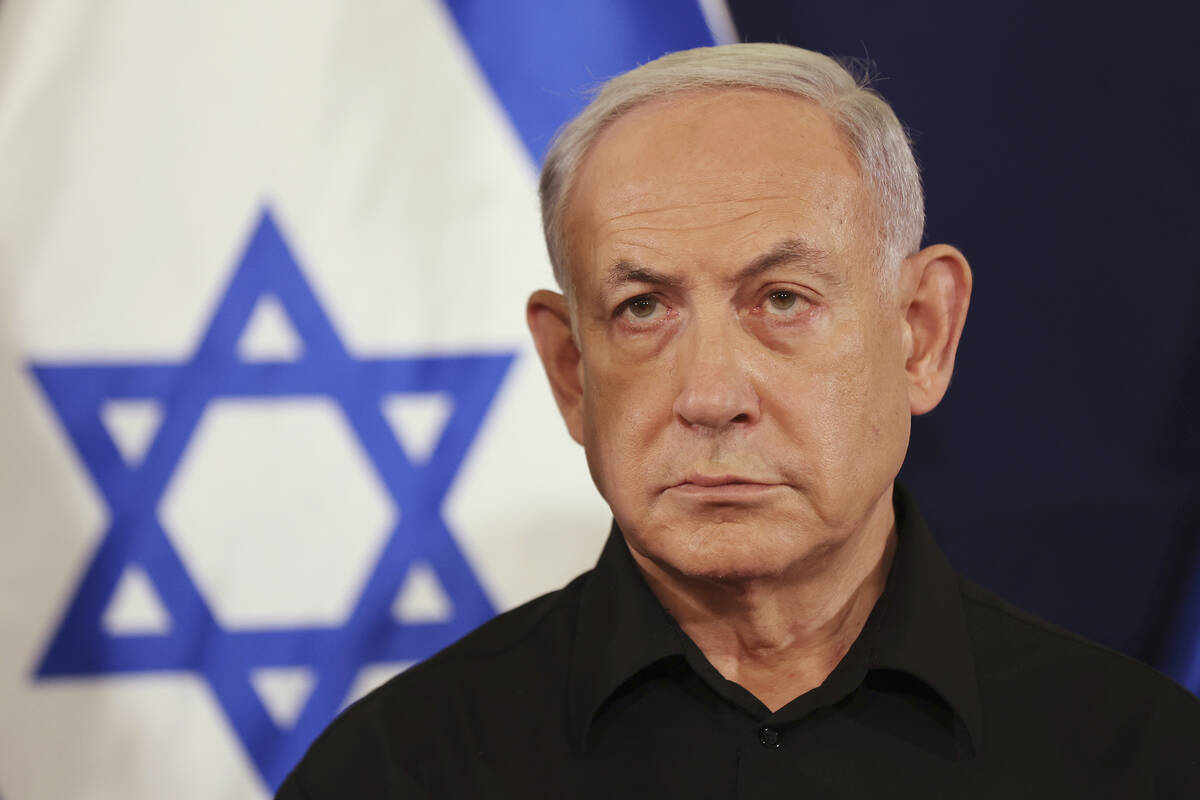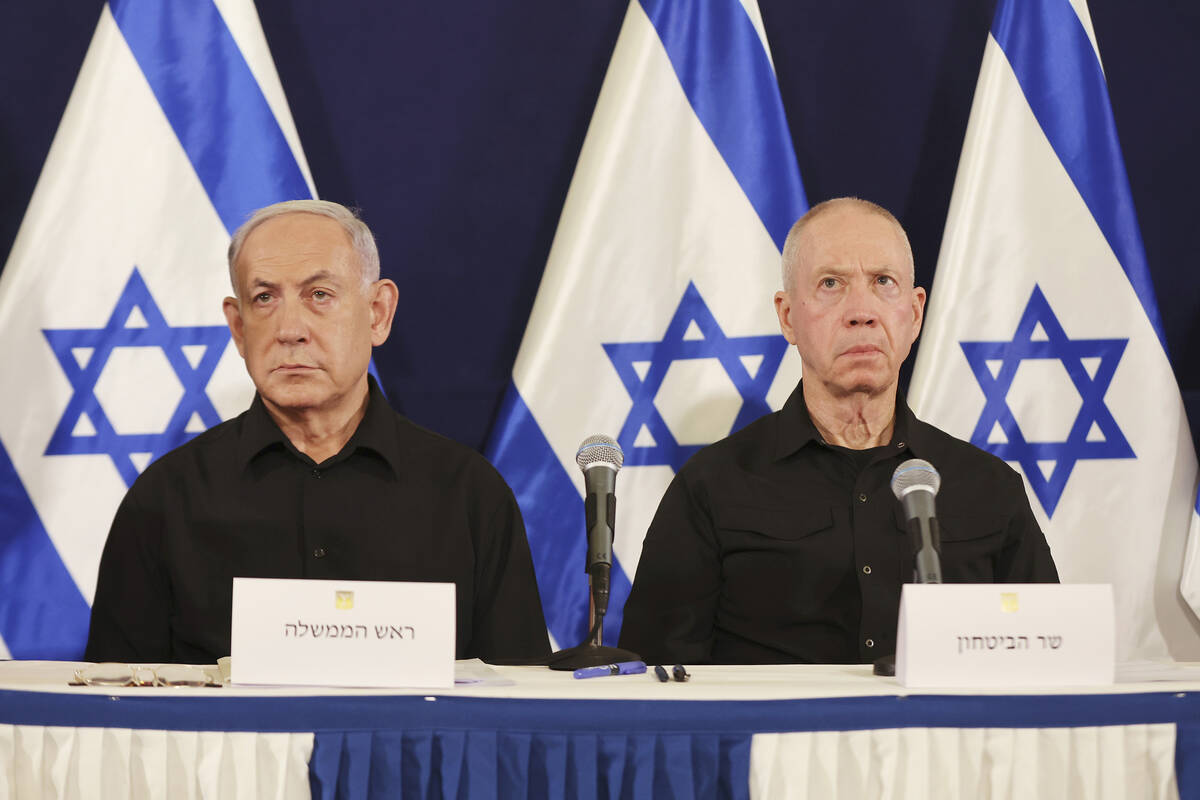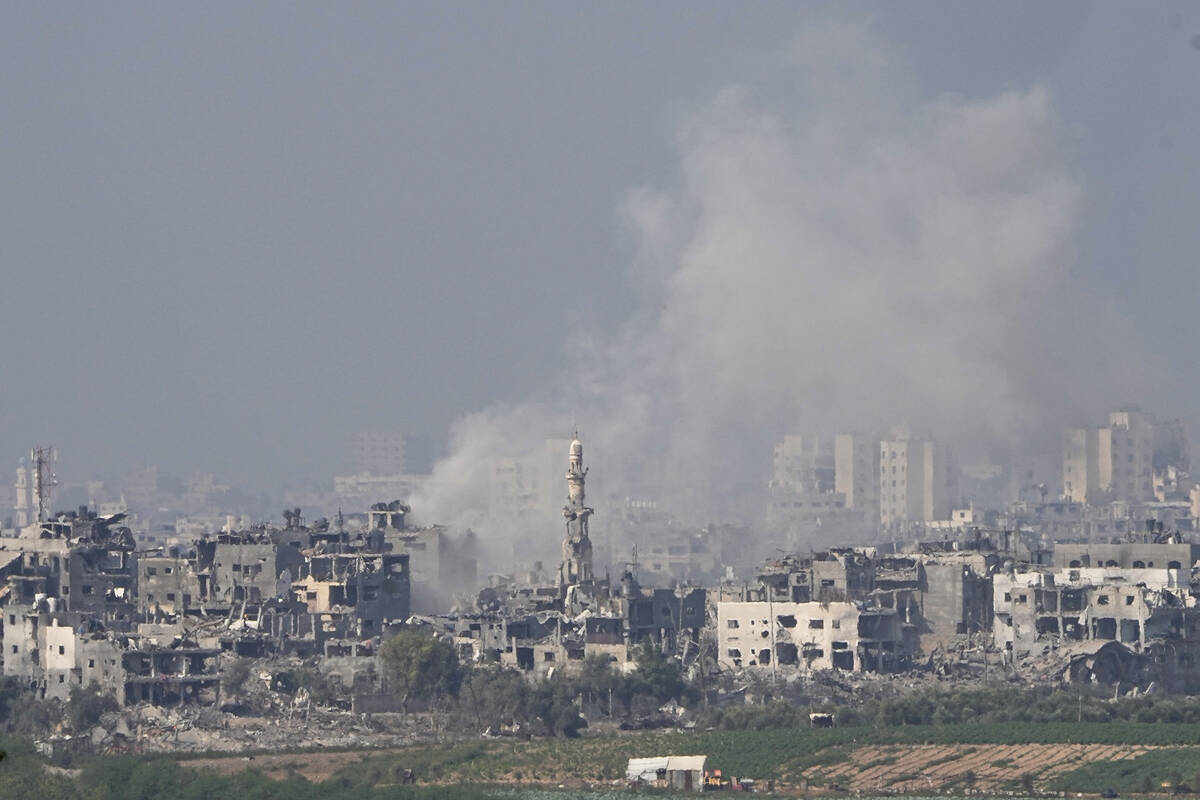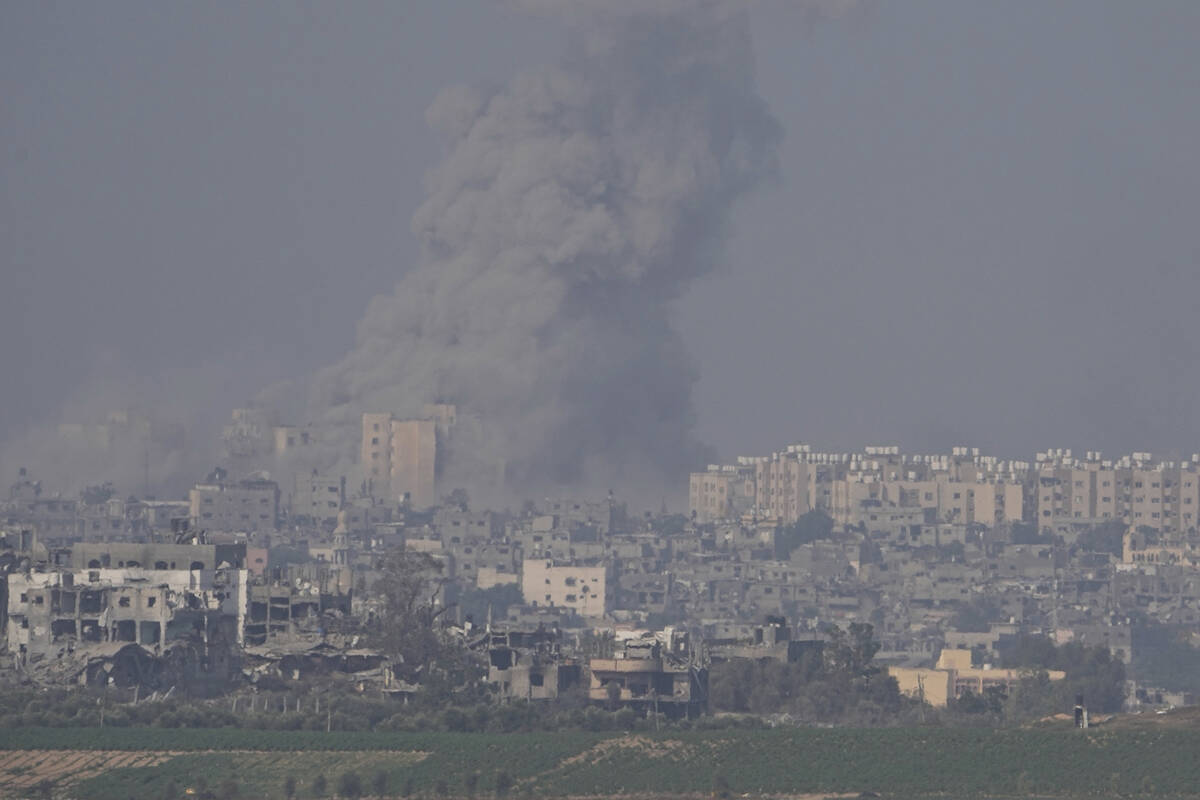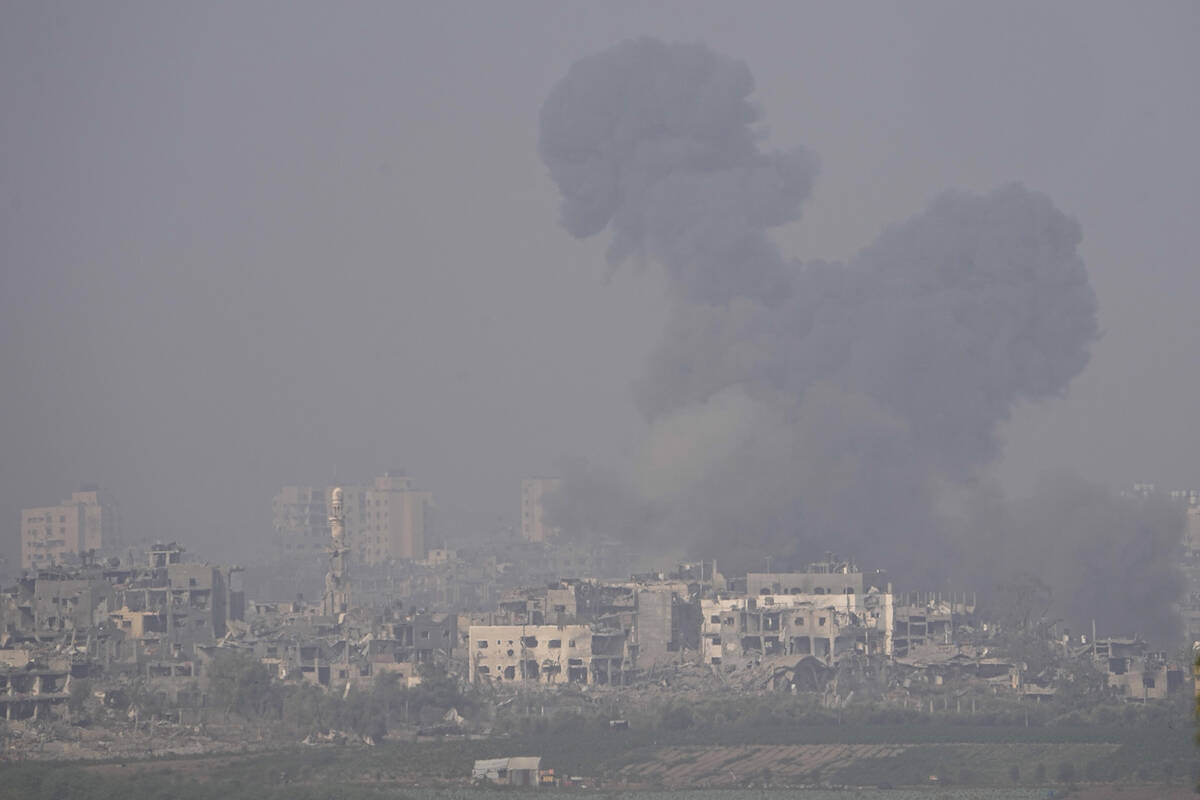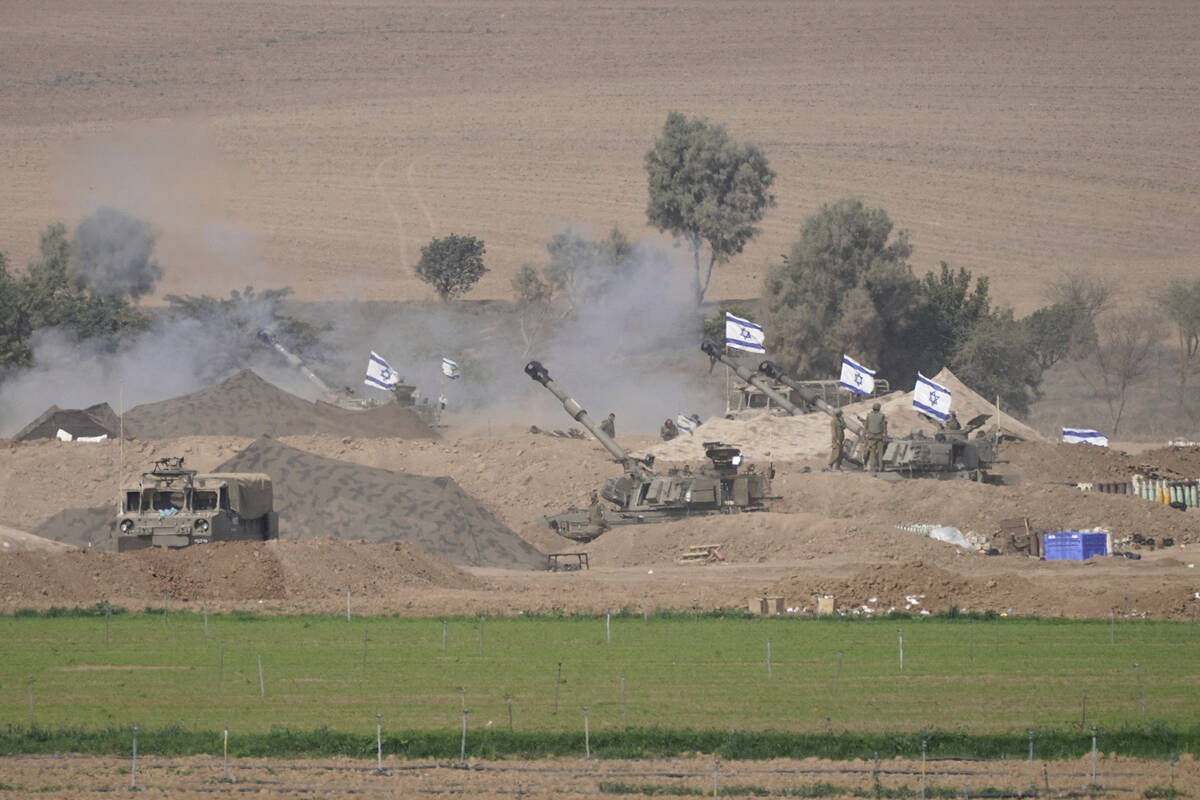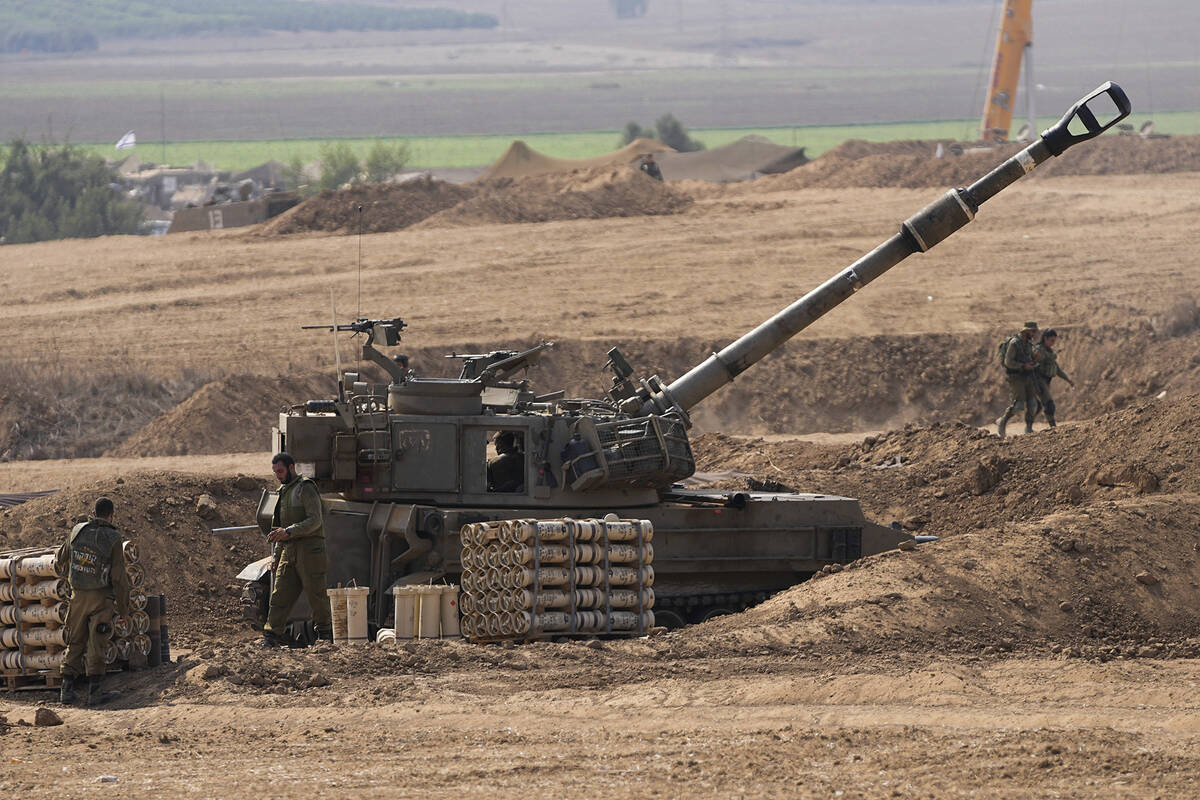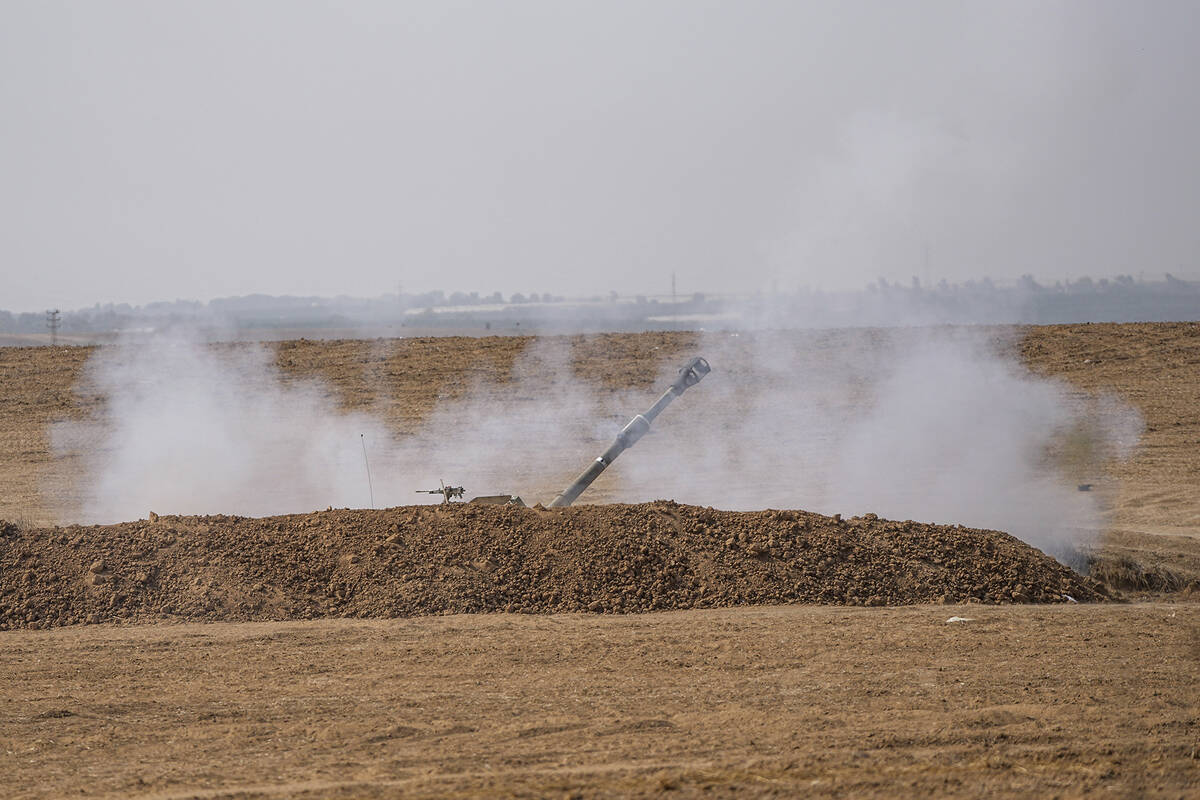Netanyahu: Israel-Hamas war enters new stage, will be ‘long and difficult’
JERUSALEM — Israeli Prime Minister Benjamin Netanyahu told the nation Saturday night that the military has opened a “second stage” in the war against Hamas by sending ground forces into Gaza and expanding attacks from the ground, air and sea. He said it will only increase ahead of a broad ground invasion into the territory.
“It will be long and difficult,” he said. “We are ready.”
Israel escalated its ground operation in Gaza, sending in tanks and infantry backed by massive strikes from its air force and navy. Israel’s defense minister said “the ground shook in Gaza.”
The military released grainy images Saturday showing tank columns moving slowly in open areas of Gaza, many apparently near the border, and said warplanes bombed dozens of Hamas tunnels and underground bunkers. The underground sites are a key target in Israel’s campaign to crush the territory’s ruling group after its bloody incursion into Israel three weeks ago.
“We moved to the next stage in the war,” Defense Minister Yoav Gallant said in remarks broadcast Saturday. “Last evening, the ground shook in Gaza. We attacked above ground and underground. … The instructions to the forces are clear. The campaign will continue until further notice.”
Early in the war, Israel amassed hundreds of thousands of troops along the border. Until now, troops had conducted brief nightly ground incursions before returning to Israel.
His comments signaled a gradual ramping up toward what is expected to evolve into an all-out ground offensive in northern Gaza. Israel has vowed to wipe out Hamas after the terrorist group invaded southern Israel on Oct. 7 and killed more than 1,400 people, mostly civilians. Israel also has declared that it will not loosen its seige on Gaza until Hamas releases the more than 200 hostages — including children and the elderly — who were taken that day.
The bombardment, described by Gaza residents as the most intense of the war, also knocked out most communications in Gaza. This largely cut off the besieged enclave’s 2.3 million people from the world. A spokesman for the Gaza Health Ministry, an arm of Hamas, told reporters that the disruption of communications has “totally paralyzed” the health network. Residents had no way of calling ambulances, and emergency teams were chasing the sounds of artillery barrages and airstrikes to search for people in need.
The Palestinian death toll in Gaza on Saturday rose to just over 7,700 people, with 377 deaths reported since late Friday, although the White House is skeptical of the figures. Hamas terrorists deliberately operate and hide in civilian areas, using civilians as human shields. Israel says its strikes target Hamas fighters and infrastructure, especially the tunnels that run under residential areas and store the group’s rockets, firearms and ammunition.
Israel: Key Hamas leader killed
The Wall Street Journal reported Saturday that Israel struck 150 underground targets and killed Hamas generals in the process. Israeli officials said they had killed Asem Abu Rakaba, the head of Hamas’ aerial squadron of paragliders and drones, the Journal reported.
Palestinian terrorists have continued firing thousands of rockets into Israel over the past three weeks.
The World Health Organization appealed to “the humanity in all those who have the power to do so to end the fighting now” in Gaza. “There are more wounded every hour. But ambulances cannot reach them in the communications blackout. Morgues are full. More than half of the dead are women and children.”
The intensified air and ground campaign raised new concerns about the dozens of hostages dragged into Gaza on Oct. 7. On Saturday, hundreds of relatives of hostages gathered in a square in downtown Tel Aviv, demanding to meet with Gallant and Netanyahu.
Some in the group demanded that Israel push for the release of all hostages before proceeding with the campaign against Hamas. Protesters wore shirts emblazoned with the faces of their missing relatives under the word “kidnapped” and the words “Bring them back.”
The families “feel like they’re left behind and no one is really caring about them,” said Miki Haimovitz, a former lawmaker and spokesperson for the group. “No one is talking to them. No one is explaining what’s going on.”
Gallant later said he would meet with the families on Sunday.
Netanyahu told the nationally televised news conference that Israel is determined to bring back all the hostages, and maintained that the expanding ground operation “will help us in this mission.” He said he couldn’t reveal everything that is being done due to the sensitivity and secrecy of the efforts.
“This is the second stage of the war, whose objectives are clear: To destroy the military and governmental capabilities of Hamas and bring the hostages home,” he said.
‘Cynical exploitation’
In Cairo, Egyptian President Abdel Fattah el-Sissi said his government was working to de-escalate the conflict through its talks with the warring parties to release prisoners and hostages. He didn’t provide further details.
The Israeli army spokesman, Rear Adm. Daniel Hagari, said the confirmed number of hostages was 229, after four were released in the past week through mediation by Qatar and Egypt. He dismissed news reports about a possible cease-fire deal in exchange for the release of hostages, saying Hamas was engaged in a “cynical exploitation” of the anxieties of relatives of hostages.
Israel has said it aims to crush Hamas’ rule in Gaza and its ability to threaten Israel. But how Hamas’ defeat will be measured and an invasion’s endgame remain unclear. Israel says it does not intend to rule the tiny territory but has not said who it expects will — even as Gallant suggested a long-term insurgency could ensue.
The conflict has threatened to ignite a wider war across the region. Arab nations — including U.S. allies and ones that have reached peace deals or normalized ties with Israel — have raised increasing alarm over a potential ground invasion, likely to bring even higher casualties amid urban fighting.



